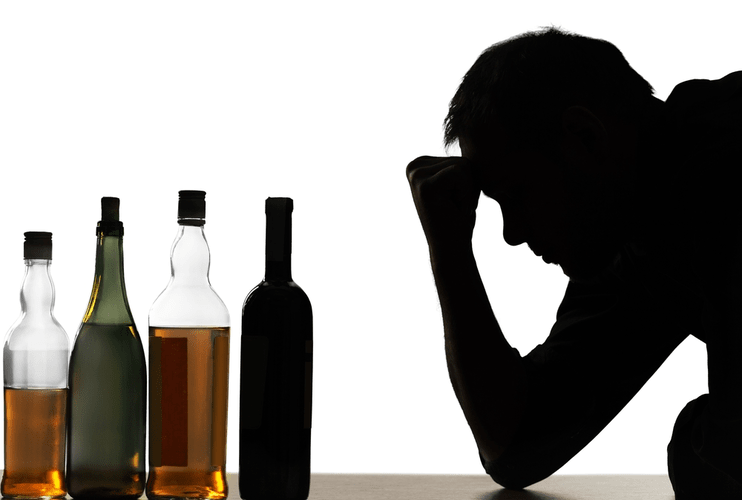If you’ve been thinking about attending rehab for drug or alcohol addiction, you’ve probably seen the terms “sobriety” and “recovery” come up a lot in your research. These words are used often among people who wish to be free from addiction, but the terms do not mean the same thing. In fact, many do not realize that there is a distinct difference between the two. It is generally the first step in a more comprehensive treatment plan. The first step to getting sober is recognizing and admitting that you https://www.myprice74.ru/info/tv/mtv/?date=2010-06-15 have a problem with drug or alcohol misuse.
- It’s about rediscovering life without the haze of substances, where every emotion and experience is raw and real.
- A lack of positive references and having a criminal record typically pose challenges.
- However, working with treatment professionals to personalize treatment programs can help you to find a longer lasting and more well-adjusted sober lifestyle.
- It can seem intimidating to look at the end goal and know the many steps it will take to get sober.
- Before quitting these substances on your own, consult with your doctor.
Understanding Emotional Sobriety and How To Achieve It
- It aims to offer insights into the benefits of a sober lifestyle and share the resources and support systems available to those pursuing sobriety.
- A mocktail looks like a cocktail but doesn’t have any alcohol in it.
- Have some sober friends whom you can invite as a plus-one to a social event such as a party or wedding.
- Research suggests they often thrive in long-term recovery, reconnecting with family and enjoying economic success.
If you continue to struggle, you may be suffering from an underlying mental health condition. It is the ongoing process of embracing a drug-free http://www.ekranka.ru/actor/165/ lifestyle and bettering yourself. These changes can be difficult at times, and you may wonder if they are worthwhile. Though it can be difficult at times, there are numerous advantages to sobriety. If you or someone you love is struggling with a substance use disorder,contact ustoday to learn about treatment options that can work well for you. Cravings are one of the biggest obstacles to staying sober, especially in the early days of recovery.
Breaking Down the Stigma of Addiction: A Witness’ Story Through Art

Healing from substance use, no matter how long you’ve used, can be really difficult. Here at Sandstone Care, we know what it’s like to go through the healing process and come out on the other side. Yes, however, not all reengagements with alcohol and drug use are necessarily the same. While some may relapse, others may not experience a slip in recovery.

Practice Healthy Living
People who are addicted to substances may require treatment in the form of medication, counseling, and in some cases, medical care. Treatment is typically long-term, and requires a lot of effort and commitment from the individual. Stopping drug use is just one part of a long and complex recovery process. When people enter treatment, addiction has often caused serious consequences in their lives, possibly disrupting their health and how they function in their family lives, at work, and in the community. Like treatment for other chronic diseases such as heart disease or asthma, addiction treatment is not a cure, but a way of managing the condition. Treatment enables people to counteract addiction’s disruptive effects on their brain and behavior and regain control of their lives.
- Different types of medications may be useful at different stages of treatment to help a patient stop abusing drugs, stay in treatment, and avoid relapse.
- The best way to handle a relapse is to take quick action to seek help, whether it’s intensifying support from family, friends, and peers or entering a treatment program.
- Spending more time with supportive loved ones and planning activities for the entire family can also help you develop a healthier lifestyle and avoid situations in which you would normally drink or use drugs.
- Substance use can strain relationships with friends, family, and loved ones.
How Sober Living Homes Are Funded: Key Financial Insights

U of Saskatchewan harm reduction counsellor Chelsea Korpan-Sparks helped organize Beyond the Buzz. She said http://aloepole.ru/articles/1077005424/a-1093329839 having people who have experienced addiction share their stories will show some students there is hope. People walk past an East Harlem health clinic that offers free needles and other services to drug users on in New York.
Areas of executive function regain capacity for impulse control, self-regulation, and decision-making. The Diagnostic and Statistical Manual of Mental Disorders (DSM) avoids the terms addiction and recovery. Sustained remission is applied when, after 12 months or more, a substance is no longer used and no longer produces negative life consequences.
Sobriety 101: A Beginner’s Guide to Getting and Staying Sober
- Temperance and abstinence underscore the historical and moral aspects, while soberness adds a layer of seriousness.
- Surround yourself with people who understand and respect your decision, and find new hobbies or interests that keep you busy and fulfilled.
- While relapse is a normal part of recovery, for some drugs, it can be very dangerous—even deadly.
- You will most likely feel more confident, empowered, and proud of yourself as you recover from addiction and make positive changes in your life.
While relapse is a normal part of recovery, for some drugs, it can be very dangerous—even deadly. If a person uses as much of the drug as they did before quitting, they can easily overdose because their bodies are no longer adapted to their previous level of drug exposure. An overdose happens when the person uses enough of a drug to produce uncomfortable feelings, life-threatening symptoms, or death. And it’s that regulating behavior tied to emotions that’s such an important step even after becoming physically sober.

Working with professionals in outpatient care and continued therapy can help challenge feelings of shame and add new strategies for healthy sobriety. Being sober empowers you to take control of your relationships, physical and mental health, and ambitions. Drug addiction and alcohol abuse can affect anyone at any time, and sobriety looks different for everyone who experiences it. However, there are some techniques and coping mechanisms that have been proven to reach results. Staying sober requires a person to analyze the reasons why they were using the substance, identify their personal triggers for relapse, and avoid falling into a pattern of use again. While the purpose of abstinence is being substance-free from a physical standpoint, sobriety also entails avoiding emotional and mental relapses to rebuild one’s life.
